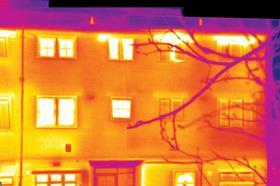A consultant writes to us about the government scrapping zero carbon targets for homes

Once again the zero carbon homes initiative grinds to a halt (ŌĆ£Government scraps zero carbon targetŌĆØ, www.building.co.uk, 10 July 2015). No such thing as zero carbon anyway. The ŌĆ£carbon neutralŌĆØ concept at least allows degrees of ŌĆ£successŌĆØ each side of neutral. Zero as a concept imposes such intractability. And legally binding CO2 budgets?
Putting emissions into perspective (data a little dated but youŌĆÖll get the picture) in 2007 the top five countries (China, USA, Russia, Japan, India) were estimated to have emitted 16.05 billion tonnes of carbon dioxide, so a 2 million tonnes savings loss is not really a loss at all. And if all other 191 (or thereabouts) countries in the world (totalling some 12 billion or so tonnes of CO2 emissions) also reduced their emissions by 2 million each, thatŌĆÖs another 382 million tonnes saved.
The key to success in the UK is not the reduction of CO2 but the reduction of energy bills. A saving in your pocket has tangible meaning. The simplest way to achieve that is to use highly insulated frame construction together with heat recovery ventilation, which also enables dispensing with a central heating system and the need for plumbed in radiators. Small, removable electric ones could be added but which could be taken off and popped in a cupboard when not required ŌĆō quite frequently.
And how many boiler manufacturers now have heat recovery ventilation systems as part of their product range? And with pollen filters, dusting as a household chore becomes a thing of the past (just imagine), not to mention relief from suffering for anyone with a pollen allergy. Trust me, it works (although sadly it doesnŌĆÖt address the issue of existing housing stock). But housebuilders seem reluctant to embrace the concept. It will also work with affordable housing. Sell the benefits and homeowners will not only ŌĆ£get itŌĆØ, they will save money, energy consumption will be reduced and what follows? Hey presto, reduction in carbon dioxide emissions. Provided, that is, that those household cost savings are not then spent on taking foreign holidays travelling by air. What was that I heard mentioned somewhere about personal carbon dioxide passports?
John Park, The Wood Consultancy, via email























No comments yet